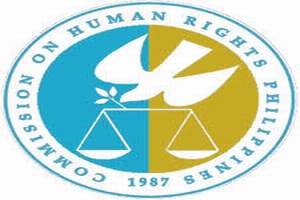From the Website of the President
links: http://www.president.gov.ph/news/president-aquino-anti-cybercrime-law-meant-curb-freedom-expression/
News
President Aquino: Anti-Cybercrime Law not meant to curb freedom of expression
February 19, 2014
Despite the controversy over some of its provisions including online
libel, the Anti-Cybercrime Law is not meant to curb freedom of
expression, President Benigno S. Aquino III said Wednesday.
In an interview with media in Sampaloc in Manila, the President said citizens have nothing to be afraid if they speak the truth.
“Ngayon, ‘yung pipigilin ba ang freedom of expression? Hindi naman yata ‘yon ang layunin. Pero, kayo, bilang mga responsableng mamamahayag meron ding mga—may karapatan kayo, at meron rin namang hangganan ang karapatan ng lahat, di ho ba (Curbing the freedom of expression is not an aim of the law’s provision on online libel. But as responsible media practitioners, you are aware you have rights, but those rights also have limits, is that not the case)?” he said.
He said it would not be fair if an inaccurate or wrong statement were repeated in various forms of media.
On the other hand, he said people who tell the truth should not have anything to fear.
“Kung tama naman ang sinasabi mo, bakit ka kakabahan doon sa libel na isyu (If you know you speak the truth, why be worried about libel)?” he said.
Country on track to achieving economic targets despite series of disasters, Balisacan says
February 18, 2014
In an interview with media in Sampaloc in Manila, the President said citizens have nothing to be afraid if they speak the truth.
“Ngayon, ‘yung pipigilin ba ang freedom of expression? Hindi naman yata ‘yon ang layunin. Pero, kayo, bilang mga responsableng mamamahayag meron ding mga—may karapatan kayo, at meron rin namang hangganan ang karapatan ng lahat, di ho ba (Curbing the freedom of expression is not an aim of the law’s provision on online libel. But as responsible media practitioners, you are aware you have rights, but those rights also have limits, is that not the case)?” he said.
He said it would not be fair if an inaccurate or wrong statement were repeated in various forms of media.
On the other hand, he said people who tell the truth should not have anything to fear.
“Kung tama naman ang sinasabi mo, bakit ka kakabahan doon sa libel na isyu (If you know you speak the truth, why be worried about libel)?” he said.
The country remains on track with respect to its economic targets as
laid out in the Philippine Development Plan 2011-2016 despite series of
calamities, Socioeconomic Planning Secretary Arsenio M. Balisacan said.
“Despite the series of natural disasters that hit the country in the latter part of the year, the Philippine economy still expanded by 7.2 percent, improving from the 6.8 % achieved in 2012,” the Socioeconomic Planning Secretary said during the regular press briefing in Malacanang on Monday.
“This creditable performance was supported by strong macroeconomic fundamentals marked by low and stable inflation, favorable interest rates, sustainable fiscal and external positions and a stable financial sector,” he said.
He noted that the country is one of the best performers among Asian economies during the said period.
In fact, Balisacan said the Philippine’s credit rating has been upgraded to investment grade for the first time in the country’s history.
The upgrade is an affirmation of the confidence of the international business community in the Philippines, he said.
“This has been reinforced by improvements in the Philippines’ ranking in several global competitiveness indices such as the IFC Ease of Doing Business (from rank 140 in 2009 to 108 in 2013) and the Global Competitiveness Report (from 75 in 2011 to 59 in 2013),” Balisacan said.
“In terms of the composition of growth, it is worthy to note the increasing contribution of fixed capital formation from 2 ppts in 2012 to 2.4 ppts in 2013 on the demand side. Equally notable on the supply side is the acceleration of the manufacturing subsector in 2013 as it provided more than three-fourths of the industry’s growth. Both these developments augur well for the growth of quality employment going forward,” he said.
Balisacan presented to the media the Philippine Development Plan Midterm Update that spells out the government’s roadmap for inclusive growth.
“I am here today to discuss about the economy, its progress and challenges, and what the government is doing to ensure that economic growth materially improves the lives of the greatest number of our people,” he said.
“Although our investment to GDP ratio of 21.1% in 2013 is not too far from our PDP goal of 22% by 2016, this is still way below what our ASEAN neighbors have achieved. Although our unemployment rate has been kept within the targeted range of 6.8-7.2%, a bigger challenge is reducing the underemployment rate, which is still close to 20%. An even bigger challenge is bringing down the poverty rate to 16.6% by 2016 from its 25.2% level in 2012,” he said.
“In taking stock of the first three years of the PDP implementation, the lessons became clear. First, good governance is an effective platform upon which strategies should be implemented. Second, macroeconomic and political stability fuels positive expectations that lead to growth,” he said.
“Third, economic growth is necessary but not sufficient for poverty reduction. Fourth, development strategies need to have spatial and sectoral dimensions to ensure inclusive growth. Lastly, disasters can negate the gains and even push back development,” Balisacan said.
“Despite the series of natural disasters that hit the country in the latter part of the year, the Philippine economy still expanded by 7.2 percent, improving from the 6.8 % achieved in 2012,” the Socioeconomic Planning Secretary said during the regular press briefing in Malacanang on Monday.
“This creditable performance was supported by strong macroeconomic fundamentals marked by low and stable inflation, favorable interest rates, sustainable fiscal and external positions and a stable financial sector,” he said.
He noted that the country is one of the best performers among Asian economies during the said period.
In fact, Balisacan said the Philippine’s credit rating has been upgraded to investment grade for the first time in the country’s history.
The upgrade is an affirmation of the confidence of the international business community in the Philippines, he said.
“This has been reinforced by improvements in the Philippines’ ranking in several global competitiveness indices such as the IFC Ease of Doing Business (from rank 140 in 2009 to 108 in 2013) and the Global Competitiveness Report (from 75 in 2011 to 59 in 2013),” Balisacan said.
“In terms of the composition of growth, it is worthy to note the increasing contribution of fixed capital formation from 2 ppts in 2012 to 2.4 ppts in 2013 on the demand side. Equally notable on the supply side is the acceleration of the manufacturing subsector in 2013 as it provided more than three-fourths of the industry’s growth. Both these developments augur well for the growth of quality employment going forward,” he said.
Balisacan presented to the media the Philippine Development Plan Midterm Update that spells out the government’s roadmap for inclusive growth.
“I am here today to discuss about the economy, its progress and challenges, and what the government is doing to ensure that economic growth materially improves the lives of the greatest number of our people,” he said.
“Although our investment to GDP ratio of 21.1% in 2013 is not too far from our PDP goal of 22% by 2016, this is still way below what our ASEAN neighbors have achieved. Although our unemployment rate has been kept within the targeted range of 6.8-7.2%, a bigger challenge is reducing the underemployment rate, which is still close to 20%. An even bigger challenge is bringing down the poverty rate to 16.6% by 2016 from its 25.2% level in 2012,” he said.
“In taking stock of the first three years of the PDP implementation, the lessons became clear. First, good governance is an effective platform upon which strategies should be implemented. Second, macroeconomic and political stability fuels positive expectations that lead to growth,” he said.
“Third, economic growth is necessary but not sufficient for poverty reduction. Fourth, development strategies need to have spatial and sectoral dimensions to ensure inclusive growth. Lastly, disasters can negate the gains and even push back development,” Balisacan said.
Office of the President Website
Article links:
http://www.president.gov.ph/news/president-aquino-anti-cybercrime-law-meant-curb-freedom-expression/
OTHER HUMAN RIGHTS PROMOTIONS WEBSITES
PROTECTION AND PROMOTION OF HUMAN RIGHTS
------------------------------------------------------------------------------------------------
----------------------------------------------------------------------------
-----------------------------------------------------
----------------------------------------------------------------------------
-----------------------------------------------------




























































0 comments:
Post a Comment